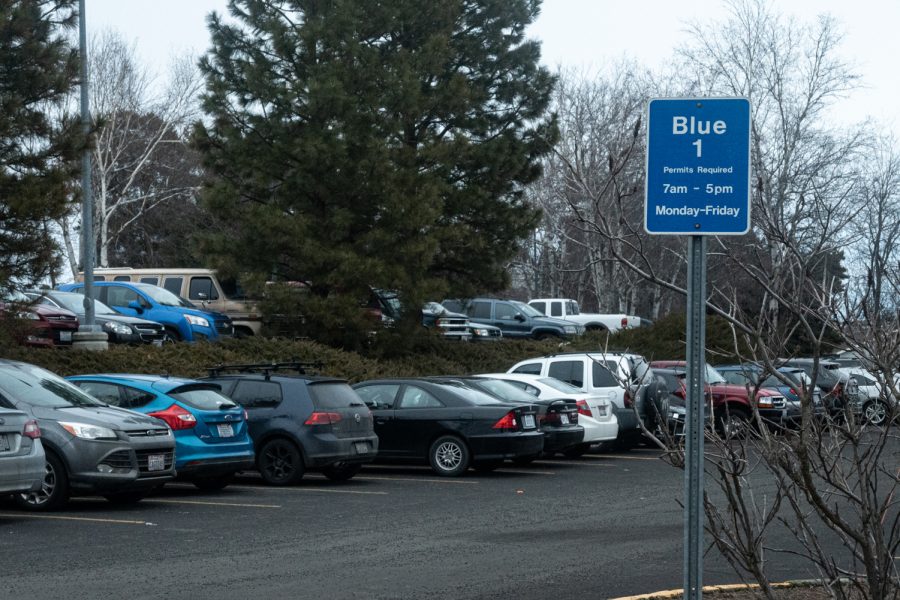Parking permits, tickets fund Transportation Services
Students frustrated by parking; department funding primarily comes from annual permits, tickets
Conner Obergottsberger, an employee at The Bookie, said he wished there was an employee discount for parking.
February 14, 2022
Editor’s note: this story has been edited to remove a quote.
Some WSU students are frustrated with expensive campus parking, while Transportation Services relies on their payments to fund the department functions.
Senior public relations major Austin Oh walks to school but still feels there should be changes to the parking policies, he said.
Transportation Services is entirely self-funded, according to the department’s website. The school and state do not provide the department with any money. This model is consistent for a majority of universities across the U.S.
Transportation Services Director Chris Boyan said there is potential for funding through the state or school, but it is very unlikely that will happen.
Boyan said that if this were implemented, the question becomes how the school would prioritize building and maintaining parking lots.
“Would they build a parking lot over a new science building? No, they’d build a science building,” Boyan said.
Cody Wilson, Transportation Services assistant director, said it is important to create a dialogue about where people’s parking money is going and also said he is open to any suggestions that students and staff may have.
Boyan said that increased rates are the result of trying to keep up with parking lot maintenance and quality.
Conner Obergottsberger, a senior humanities major and employee at The Bookie, said paying for parking creates a financial strain on student employees.
Obergottsberger said he likes to drive to work because of the winter temperatures and uphill incline.
“I really don’t mind having to pay. I just wish they gave us some sort of employee discount for parking,” he said.
Transportation Services does not offer discounts, but Boyan said he hopes that the different options they provide help relieve some financial burden, whether it be cheaper lots or other forms of transportation.
The majority of Transportation Services revenue comes from parking permits. Annual permit prices decrease each month after they first become available for purchase, according to the website. The cost of specific lots depends on where they are located. Lots closer to campus are more expensive.
Boyan said that the most common violations on campus are nonpayments, which include parking without a permit or forgetting to pay the hourly fee.
The appeal process is much more difficult for more severe violations like parking in a disabled spot or a fire lane, he said.
The purpose of ticketing is to protect those who paid for permits and ensure that they have a place to park, Boyan said.
Obergottsberger has received two tickets this year. The first was for accidentally entering in the wrong license plate number and the second for staying 15 minutes over the time limit.
“I made an appeal to remove the first one, which they were nice enough to do. The second one was more annoying because I was still working during that time,” he said.
Last school year, Transportation Services launched the AMP app. The app allows for contactless mobile payment and notifies users 15-20 minutes before their parking meter expires.
Obergottsberger now utilizes the app and said it is more convenient.
“The app has helped alleviate the parking ticket anxiety and has made collections far more efficient,” Boyan said.









